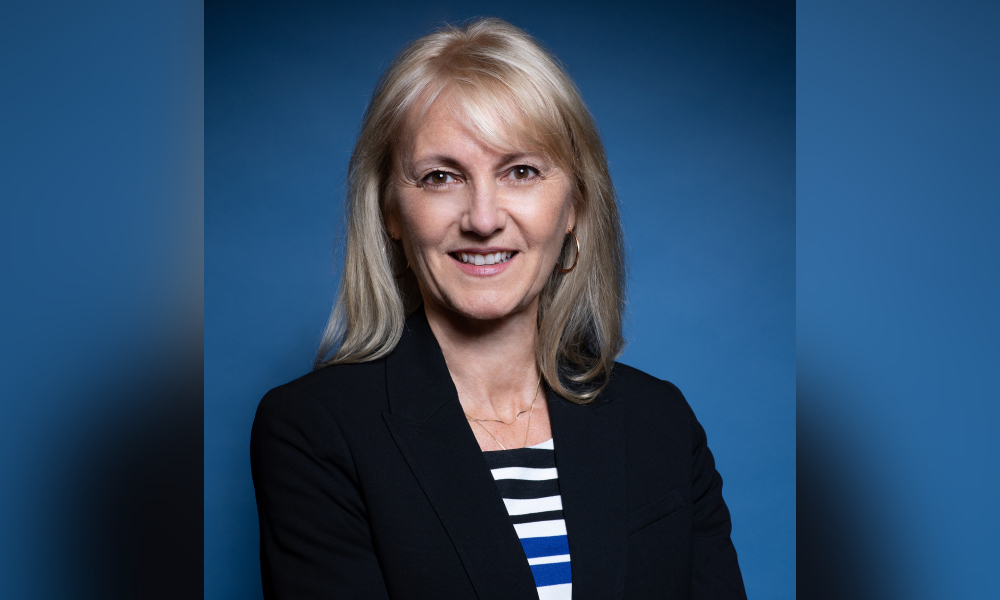
Lynn Brownell, CEO of WSPS, on her career path – and why safety is the future of HR

As president and CEO of Workplace Safety & Prevention Services (WSPS), Lynn Brownell knows a thing or two about the importance of organizational health.
“Health and safety has played a significant role in my professional journey,” Brownell told HRD. “I was never a consultant, but I’ve worked in this industry for most of my career – on the transportation side and then with the service sector, and now 11 years at Workplace Safety & Prevention Services (WSPS) where we have an occupational health and safety prevention mandate covering agriculture, manufacturing and the service sectors. My career has focused on stakeholder communications and governance - areas of the business in which I still love being involved.
Read more: Is all-remote the future of work?
“In 2010, the Ontario Service Safety Alliance merged with the Industrial Accident Prevention Association and Farm Safety Association and WSPS was born. By this time, the goal of protecting the potential of workers and businesses through the prevention of workplace incidents had really become a passion for me. During the amalgamation, I worked as a director of strategy, stakeholder and government relations which meant I had the pleasure of working closely with the senior teams from the three legacy organizations as we transitioned to one organization with one board of directors. The board graciously appointed me as acting CEO in 2016 and then the role become permanent in 2017.
“Here at WSPS, my main contribution centres around connecting people: government and industry; business leaders, communities and partners; our employees, volunteers and customers. There are many moving parts in what we do and many relationships that need to be nurtured. Although protecting people’s physical health and safety is still our top priority, we have moved into spaces such as mental harm prevention, the role of leadership in creating a strong safety culture, and of course, the impact of technology on everything we do.”
As a female CEO, Brownell was quick to offer up advice to the next generation of female talent. For her, it all comes down to being true to your authentic self – the rest will ultimately follow.
Read more: How to improve inclusion in the workplace
“I think anyone could apply the advice I would give,” she told HRD. “We need to encourage people to know themselves and be true to themselves and play to their strengths. We need people to bring what makes them unique individuals to their careers. Leaders need to get out there and speak to diverse groups and let them know that traditional ceilings have no value anymore – we need different viewpoints, skills and experiences. WSPS will be sponsoring the Skills Ontario Young Women’s Conference – for the third year in a row - and I’m delighted to speak to such an enthusiastic group of young people who are interested in careers in the skilled trades and technologies. It’s a different world today and the differences people bring to their professional lives make businesses so much stronger. And much more interesting!”
Looking back over the past few months, leaders across the globe have struggled to maintain morale and keep employee spirits high. It’s not been easy – but companies such as WSPS have really gone above and beyond in looking out for their people.
“It’s very simple,” added Brownell. “We knew how to respond and that response centred on people! At WSPS, we were as well prepared for this kind of a crisis as a company can be. After all, we are in the business of managing risk – that is what we do and what we’ve trained for. But none of that matters if you don’t take care of people first – and by people, I mean everyone’s people! And we really had to take a leadership role to bring everyone together and get the ball rolling.
“When we first started to grasp that COVID-19 was indeed turning into a pandemic and it would very much affect us here in Ontario, we immediately went into action to protect our WSPS employees – our most important asset. We transitioned to an almost one hundred per cent remote workforce overnight to keep people safe. We put an action plan in place: how can we ensure everyone has what they need to safely work from home? What are the mental health concerns? How can we ensure everyone stays engaged?
“While we were ensuring our people were safe and productive, we had the same concerns for our customers’ people. Many of our customers employ essential workers as WSPS serves the agriculture, manufacturing and service sectors. These are the people who grow our food, process our food and sell our food – the entire food supply chain! They had to keep working and we needed to do everything we could to help employers keep them safe. We worked with the government and with our advisory committees that represent ten industry subsectors to determine what was needed, quickly create guidance, and get the messages out to people in the most efficient way possible. And it’s still happening. It’s evolving all the time.
“The whole experience has truly brought home to me the importance of government and industry working together with organizations like ours to achieve goals. And I think a lot of the lessons we have learned – and will learn in the future – can be applied to small businesses. They’re going to need help to pull through this.”